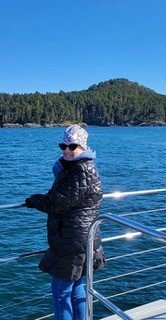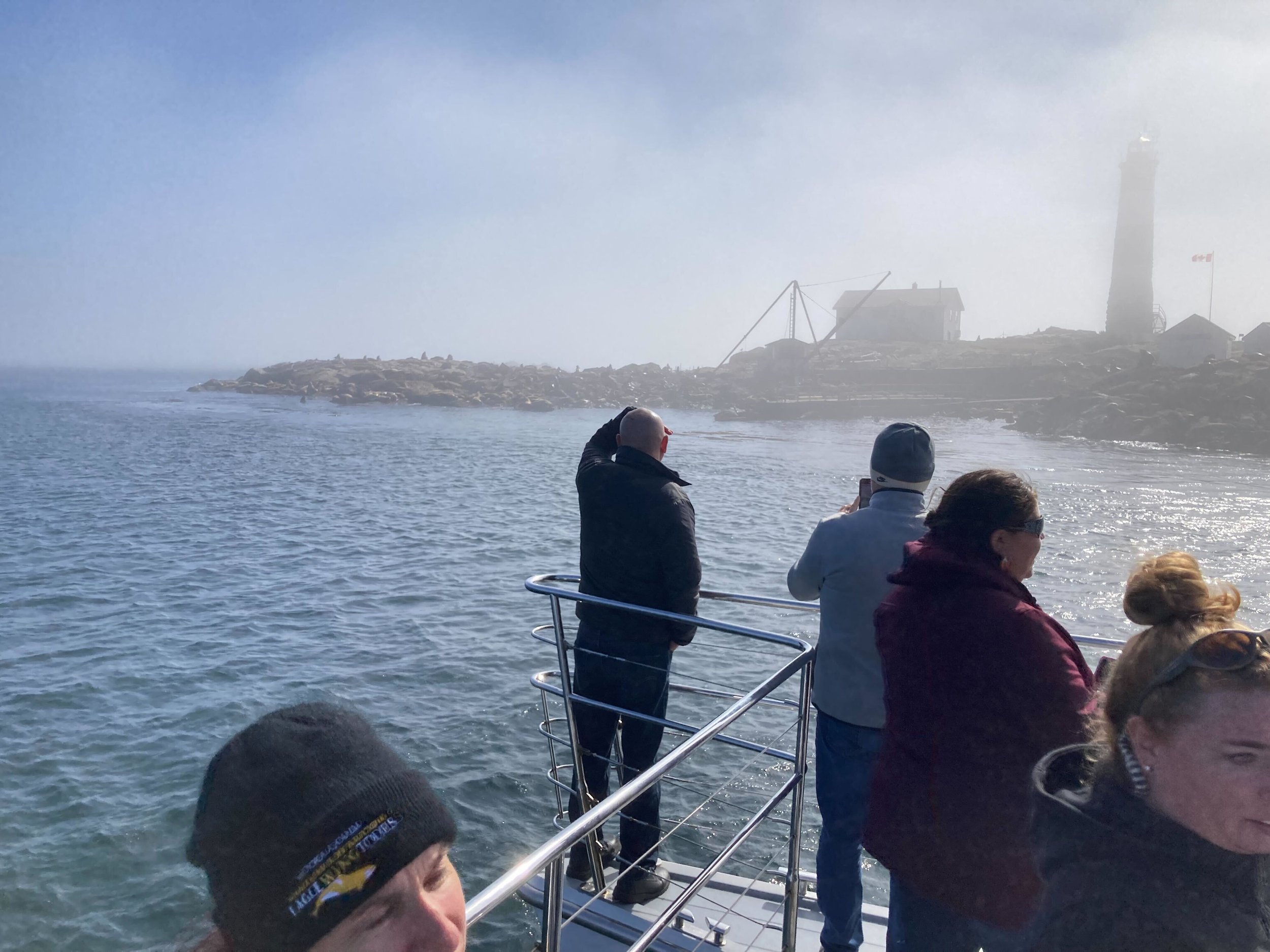Renewing my commitment to be a more responsible traveler
Reflections on Victoria: A Guest Blog Series
By: Cathleen Johnson
This blog includes a series of reflections from members of the travel and tourism industry that attended the Meaningful Travel Summit in Victoria B.C. Cathleen Johnson is one of the most experienced, connected, and knowledgeable professionals in the area of hospitality and tourism in the communications field. She left a 30-year career at Edelman, the world's largest public relations firm, to open her own consultancy focusing solely on the travel and tourism industry.
I have attended most of the Tourism Cares events since the first one on Ellis Island in 2003. I’ve painted and planted, dug things up, and torn things down over the years. So, I felt a little guilty when I signed up for the whale-watching experience option at this year’s Meaningful Travel Summit in beautiful Victoria, British Columbia. After all, we used to vie for the distinction of who could get the filthiest in one day at Tourism Cares events, back when we referred to them as “clean-ups”. Whale watching didn’t appear to be a very difficult – or dirty – activity.
Aside from the stench of the massive honking sea lions that we sighted on an island off the shore of Vancouver Island, our excursion on “Inspiration Day” with Eagle Wing Tours, Canada’s first and only third-party verified 100% carbon-neutral whale watching company, was easy on the body and the eyes. We were fortunate to see a number of whales breaching and slapping their massive tails on a bright blue but very breezy day. We darted fore and aft, port and starboard on the spacious catamaran to spot them with the help of expert sighting skills and in-depth commentary by Eagle Wing’s expert naturalists. Our excursion didn’t feel invasive to the wildlife in the Salish Sea – we kept a respectable distance, and the captain slowed or turned off the engines when we were near any whales or sea lions in the water.
The Summit activity was far from strenuous, but despite the beauty of the day, the wonder of the whales and the stunning Pacific Northwest scenery, it did weigh heavy on our hearts. The focus of Tourism Cares events has evolved since the days of refurbishing some of our most-visited destinations in the U.S. Now, the Meaningful Travel Summits are multi-day global events that pair education, service, social enterprise development, and industry networking; our Summit in Victoria focused on exploring the intersection of Indigenous practices + destination stewardship.
It had been in the planning since before Covid, so it was a bit serendipitous, and maybe even a bit divine intervention that put us there on Friday, September 30, the second annual National Day for Truth and Reconciliation, or Orange Shirt Day, in Canada. This day honors the lost children and survivors of residential schools, their families, and their communities. The National Day for Truth and Reconciliation is a day to stand with Indigenous peoples and to honor this day, Tourism Cares and Eagle Wing Tours arranged for us to have two very special guests join us from the Songhees Nation - Cyril and Melissa. As we gathered for storytelling with our guests on the bow, we stopped at remote islands where the Songhees and Esquimalt Nations have lived for the past 5,000 years. Cyril told us that his grandmother was the last original resident to walk off of the Tl'ches (Discovery and Chatham Islands ) when the Nation was relocated. We all had tears in our eyes as he told us stories of their removal from their native lands.
On the day prior to our “Inspiration Day,” we heard from many speakers who educated us on their sustainability programs and the efforts of local businesses to honor the Indigenous peoples of Victoria and British Columbia. For me, one of the most interesting speakers was Brian Cant, Vice President, Business Impact & Engagement for 4VI, who told us how the Vancouver Island DMO has reinvented itself from a marketing organization to a social enterprise, created to ensure that travel is a force for good for Vancouver Island. If you would like to know more about 4VI’s transition to a Social Enterprise, watch this video.
We also heard the wrenching story of Canada’s now infamous residential schools from one man who was a victim of the national tragedy. Eddy Charlie is a member of Quw' utsun (Cowichan Nation), a former student at Kuper Island Residential School. Eddy bravely shared the story of his separation from his family at the age of 4 when he was taken to a residential school, forbidden to speak his native language or practice his culture, and exposed to partial starvation and repeated sexual abuse. His story shocked and horrified us. In the complete silence that followed his storytelling, we all had time to wipe our tears and reflect on how much we still have to learn about the cultures and the places we visit, and how much we still must do to be fully conscious and responsible travelers and travel providers.
Eddy’s story does have a good ending – he and his partner, Kristin Spray are the originators of “Victoria Orange Shirt Day”, which took place on our final day in Victoria. The gathering reminds all Canadians and visitors to the ceremony that “Every Child Counts.”
So, I didn’t get dirty or suffer from sore muscles on this Tourism Cares Summit, but I was just as exhausted – and exhilarated --as I have been in other years. I was exhausted from learning so much more about the challenges we face to be sustainable in our businesses and our own lives and to be inclusive and respectful of the cultures we experience when we travel. I was reminded that I have to be better at researching the places I visit so that I can honor the people who live there, understand and respect the wildlife and nature that call us to visit there and the history that may, or may not be so pretty.
And I was excited again, as I always am after a Tourism Cares event, to renew my commitment to be a more responsible traveler and to work even harder to contribute to making our industry more educated and accountable as a force for good on our planet.



